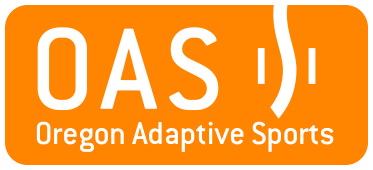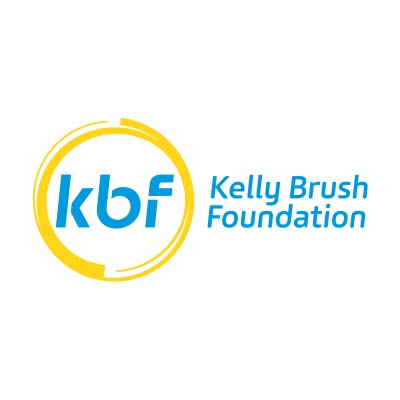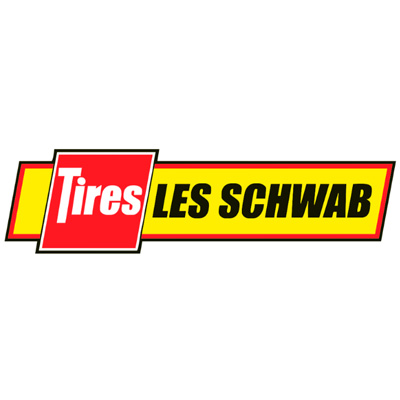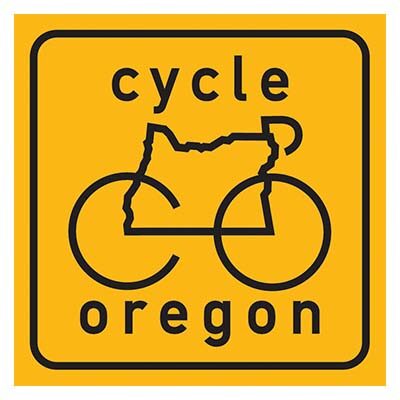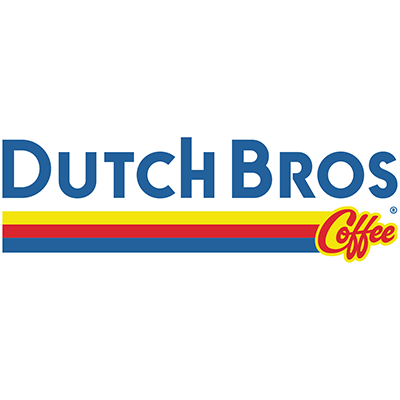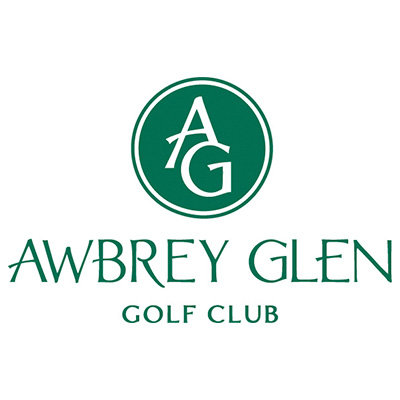Athlete Spotlight: Jack Hogan
Written by: Dave Nichols
Introduction
I was having dinner at a family friend’s house and I was asked, “Do you know Jack Hogan?”
I did not know the name at the time. They said he was an engineer, a fellow Oregon State graduate, and
he had also gone to Craig Hospital in Colorado.
When I went to Craig Hospital after my fall in 2017 there was a physical therapy gym that had flags from
all the schools represented by their patients . There was not an Oregon State pennant, but I changed
that soon. Not only was Jack a fellow OSU Beaver but he is also an engineer. We were definitely
destined to connect. We have lots of things in common, I think meeting him was the start of friendship.
I really enjoyed interviewing Jack. I hope you will as well.
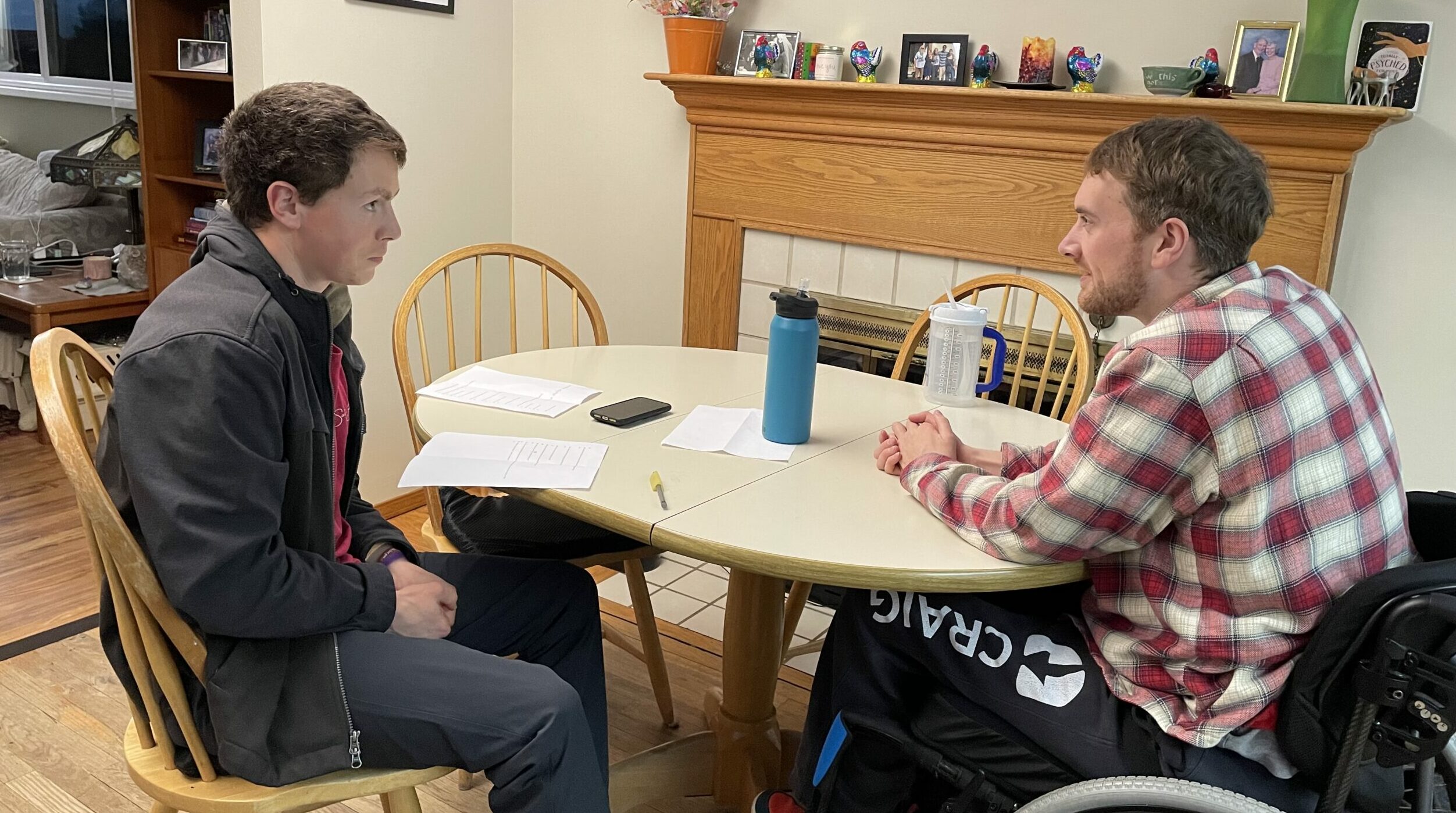
Interview
DN: What is your name?
JH: I am Jack Hogan.
DN: How old are you?
JH: I’m 29
DN: Can you tell us a little about yourself before the accident?
JH: I was really active before the accident. I played soccer all the time. I would go to pick-up leagues throughout the week, I was on least two different teams at a time, I would play indoor soccer, I would play outdoor soccer. I would run for fun, and to condition for soccer. I was a big hiking enthusiast. I rode my bike all the time. I picked up mountain biking when I moved to Bend in 2018, and also snowboarding and paddle boarding. I found it fulfilling to be extremely active.
DN: Can you share a little about the accident?
JH: Yeah, I’m comfortable talking about it. We had been out in Eastern Oregon in a place called the Alvord Desert. We were coming back after the weekend so I could get back to work on Monday. We were travelling on a dusty gravel road and I was in the front passenger seat with my seatbelt on. The woman who was driving swerved to miss part of a cattleguard that was in our lane. The car rolled. I blacked out and then came to after the car righted itself. My neck was immediately broken and the vertebrae at the base of my neck sheered, severing my spinal cord. And we were in the middle of nowhere. Fortunately, the woman in the back seat knew to immediately support my neck. I couldn’t turn my head or see what was going on. My sense of time was distorted, so I don’ know how long it took, but the first person who came by was blessedly a paramedic out of Boise. The second person to come by was a surgeon from Saint Charles Hospital in Bend. It was an amazing coincidence that such experienced people were ready to take over the scene. I was Life Flighted to St Alphonsus Hospital in Boise and spent ten days in the ICU. Then I was flown to Craig Hospital in Colorado for three months of rehab.
DN: So, you’re 3 years out from the accident are you still changing? Improving? How do you measure this?
JH: I’ve sort of leveled out at this point. Since my injury is complete, I’m not going to get more function
out of the injury. Right now, it’s all about adapting to what I do have.
DN: What types of things do you like to do now?
JH: Since I have a more stationary lifestyle now, my hobbies involve more watching or listening.
Like futsal. There’s an amateurs Men’s Champions League at the local futsal arena in Portland that I like to watch on a weekly basis. There are some incredibly talented players in that league. The venue is cool to hang out at too. I also like to go out to music shows. I’ve mostly been exploring the electronic music scene around Portland, but I can get down with almost any genre. I like to read a lot. I like to exercise. Lately I’ve been doing a lot of sudoku puzzles. I like to color. And I’m just coming off a huge chess binge. I enjoy mountain biking with OAS. Post-injury, I have gone rafting in the Deschutes in Maupin, OR. I’ve done some kayaking in Oregon City, near Willamette Falls. I also went paragliding for the first time this summer!
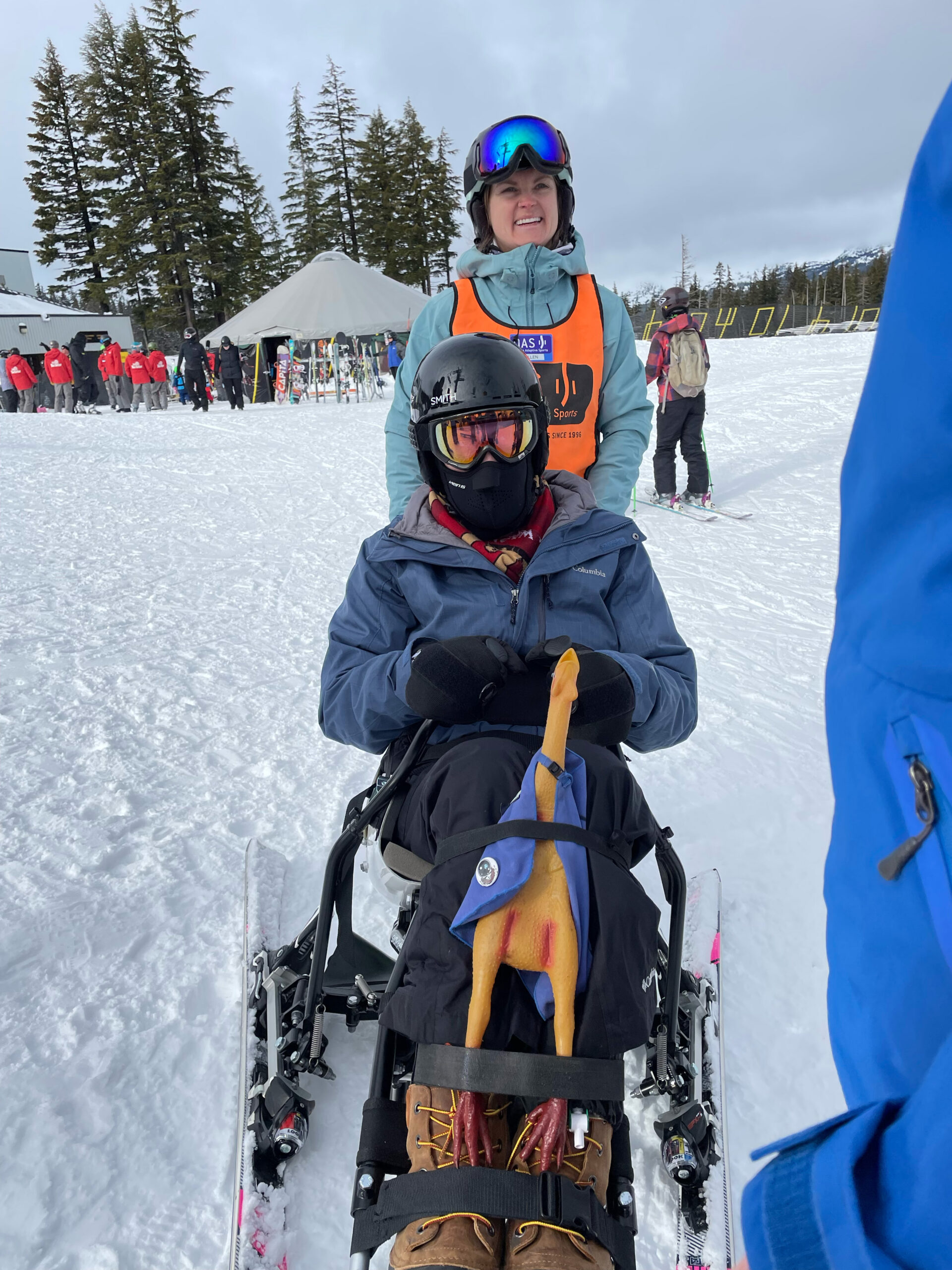
DN: Do you do things with the OAS?
JH: Yeah, I’ve been mountain biking with them for two years now. I went skiing with them last winter,
and I plan on doing it again this winter.
DN: Do you plan to do another trip with T Rec?
JH: I would like to! I really enjoyed the trip I went on.
DN: Do you do think people treat you differently since the injury?
JH: Absolutely, they do. People are very nice to me. They have been extremely accommodating and they
give me lots of space. I return the favor with smiles and stickers.
DN: is there anything you would like to use this opportunity to tell people?
JH: Honestly, paralysis is a nightmare. It’s hard enough being stuck in a chair, but to not be able to use my hands makes it unbelievably frustrating. There’s also a pretty familiar saying within the SCI community that “every spinal cord injury is different.” It’s so true. I even find it hard to fully understand what other people in wheelchairs are going through because their circumstances and level of function is always so different, even when it’s similar level of injury.
DN: Are you involved with the other “adaptive” groups or organizations?
JH: I have done several camping and kayaking trips with AWL (Adventures Without Limits) and OSCIC
(Oregon Spinal Cord Injury Connection). I have also been involved with LEAP (Life Expanding Adventure Program). They’re all about getting disadvantaged people on the river. I’ve gone on rafting trips in Maupin with them for the last two summers. I’ve been to a number of the bike clinics with ASNW (Adaptive Sports Northwest) on the Portland International Raceway. Astro Paragliding is the group that I went paragliding with this summer. They work with people in wheelchairs or who have a disability and take them paragliding. That was an awesome experience. The paragliding instructor is so rad. Such a nice guy.
DN: How does OAS compare to the other organizations?
JH: OAS is definitely top tier. One of the best adaptive sports organizations I’ve been a part of so far!
Really cool people, and in an amazing location.
DN: Has your biking improved? How can you tell?
JH: Yeah, I feel more comfortable on the bike now. Although, this summer I rode with them four times,
and I crashed three out of the four times, so I’ve also got like kind of a sketchy record right now. All
wrecks were pretty slow and controlled tip overs, except for when we had to jury rig a bike fix mid-
expedition. The OAS staff and volunteers ingeniously made it all work.

DN: What makes OAS special?
JH: My favorite part has been the people. I really like all the volunteers I’ve worked with. Melody is
great, she is the ski and mountain bike instructor that I’ve ridden with the most. The relationship with
the people in the organization is what makes them great. Hard to beat the location too! Bend is an amazing place. I lived there for almost three years prior to my injury, and it really started to feel like home.
DN: Does the OAS encourage safety?
JH: Absolutely! They are very safe. You are doing challenging things, in a safe way.
DN: Have you been able to make friends at activities with OAS?
JH: I have been able to make friends through the activities with OAS! My friendships with the staff have
gotten stronger. When I see them around everybody’s always happy to see me again.
DN: Do you drive?
JH: I do. I have a modified ramp van with hand controls. It’s lifted and lowered to make a cabin area tall
enough for me and my power chair. The bucket seats and passenger seat have been removed, making a
pretty spacious cabin. I call it “The Spaceship.” A ramp slides out the side door like a spacecraft. I park
my power or manual wheelchair in the passenger seat area and then transfer to the driver seat
whenever I drive. It makes for a lot of transferring whenever I want to go anywhere; at least four times
to go somewhere: one to leave home, one to get there, one to leave there, and one to get home.
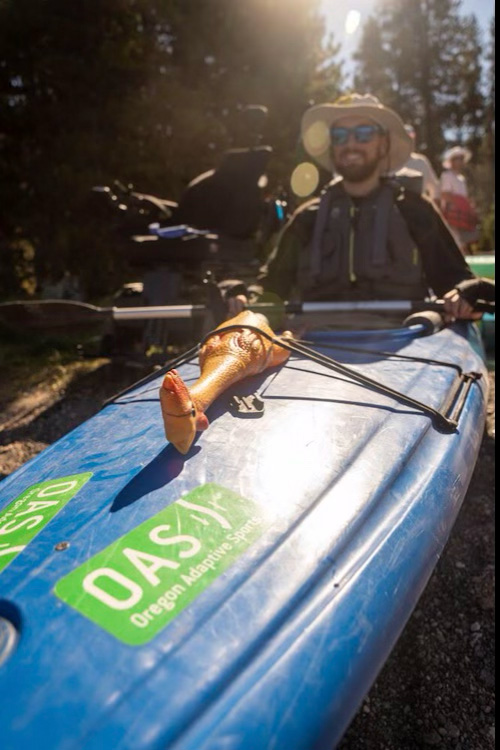
DN: Are you working?
JH: I do not. Right now, managing the spinal cord injury is my full-time job.
DN: What kind of progress do you notice in yourself after biking with OAS?
JH: I feel more confident! Both in my ability to bike, and in my ability to do challenging things.
DN: Do you look forward to doing things with the OAS?
JJH: Definitely! I will continue to work with OAS.
DN: Do you feel like the outdoors are more accessible to you now?
JH: Yes, I am much more confident in my ability to access the outdoors since the injury. It was
heartbreaking to be so excluded from nature just after the accident, but groups like OAS have been
monumental in helping me get back into it.
DN: What do you wish they would do differently?
JH: I just wish they offered more programs. They’re so good at mountain biking and skiing, I’d love to see
what they could do if they branched out to do kayaking or mountain climbing or rock climbing
DN: Are you hopeful that there will be a medical breakthrough to improve your quality of life?
JH: I am hopeful for a real breakthrough. There has to be some incredible technology that has already
been developed for spinal cord injuries. I’ve seen some of the progress but it’s a bit shaky at this point.
But the way technology has been accelerating over the last few decades I’m very hopeful there will be
something pretty profound.
DN: What does “super chicken” mean or represent?
JH: Super Chicken is my mascot! I am the Super Chicken’s chaperone. We go everywhere together. It’s a
good ice breaker and it attracts people with a goofy sense of humor.
DN: Is it related to the cartoon TV show?
JH: It is not, I found out about the TV show after I adopted the Super Chicken. He was an inside joke with
our friends prior to the accident. He used to live in Hawaii with our friends and would go to music
festivals with us. Then after my accident the Hawaiians sent me a care package including the Super
Chicken. I strapped it to the wheelchair and became known around Craig Hospital for the Super Chicken.
The stickers came out once I came back to Portland. Now you can find the stickers all over town.
